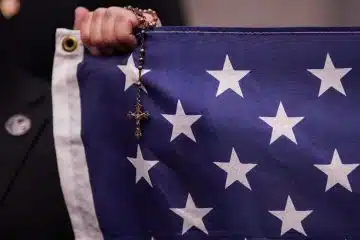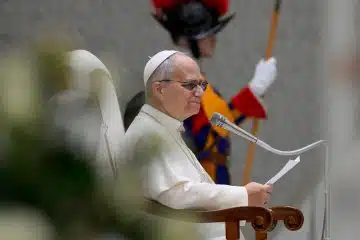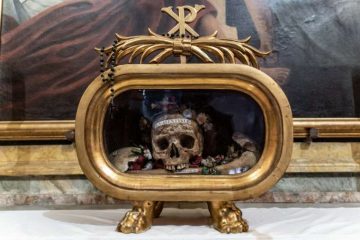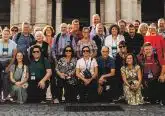September Seek the Lord
 “Run so as to win.” St. Paul wrote these words to the Christians at Corinth, a city with a large stadium and anchored in the centuries-old Greek athletic tradition. “Every athlete exercises discipline in every way. They do it to win a perishable crown, but we an imperishable one” (1 Cor. 9:24-25).
“Run so as to win.” St. Paul wrote these words to the Christians at Corinth, a city with a large stadium and anchored in the centuries-old Greek athletic tradition. “Every athlete exercises discipline in every way. They do it to win a perishable crown, but we an imperishable one” (1 Cor. 9:24-25).
Sports and the Catholic spiritual life, perhaps surprisingly, have some significant aspects in common. Saints from the Apostle Paul to Pope St. John Paul II have taught us that focus, persistence and determination are as necessary to the faithful Christian witness as to the successful athlete. At the same time, participation in sports can nourish important human values.
Almost two millennia after St. Paul, at a Mass in Rome’s Olympic Stadium celebrating the Jubilee of Sports People on Oct. 29, 2000, Pope St. John Paul II used a similar sporting analogy. “Every Christian is called to become a strong athlete of Christ, that is, a faithful and courageous witness to His Gospel,” he said. “But to succeed in this, he must persevere in prayer, be trained in virtue, and follow the divine Master in everything.”
Perseverance is necessary for success at anything in life, Pope St. John Paul II pointed out. “Anyone who plays sports knows this very well: it is only at the cost of strenuous training that significant results are achieved. This is the logic of sport; it is also the logic of life: without sacrifices, important results are not obtained, or even genuine satisfaction.”
St. John Paul was, himself, an avid athlete who hiked and skied even after he became pope. In his 2000 speech, he thanked God for the gift of sports “in which the human person exercises his body, intellect and will, recognizing these abilities as so many gifts of the Creator.” And he noted that playing sports “can encourage young people to develop important values such as loyalty, perseverance, friendship, sharing and solidarity,” plus a healthy sense of competition. Most of all, sports teaches that the achievement of a goal, particularly a stretch goal, is the result of embracing everything that leads to obtaining that goal and rejecting those things that do not.
As Catholics, we are called to be saints. This is our ultimate goal. It is not the goal of an exceptional few or those living out a particular vocation. The universal call to holiness is at the very heart of one of the central documents of the Second Vatican Council, Lumen Gentium. “Therefore in the Church, everyone, whether belonging to the hierarchy or being cared for by it, is called to holiness, according to the saying of the Apostle: ‘For this is the will of God, your sanctification’” (LG 39). Just as an elite athlete orients his or her whole mental and physical life – training, nutrition, competitive psychology, skill development – to the end of athletic excellence and winning, so must we strive to orient all our thoughts, words and deeds to our ultimate end: holiness. Everything we do, every choice we make, moves us either closer to that goal or further from it.
Unlike athletic contests, the competition within ourselves between faith and doubt, virtue and vice, light and darkness, is one we must win. Fortunately, we are not alone in this contest. The Catholic Church, Christ’s sacramental presence on earth, imbued with the Holy Spirit, offers us everything we need to orient our lives to Christ. Among them are prayer, spiritual reading, Sacred Scripture and Tradition, the saints, the holy sacrifice of the Mass, the sacraments and adoration of our Lord in the Eucharist. These are gifts which we should not ignore.
When our time on this earth comes to its end, may we echo the words of St. Paul: “I have competed well; I have finished the race; I have kept the faith” (2 Tim. 4:7).













